Say My Name Right — It's Not Your Chizzy, It's Chizoba!
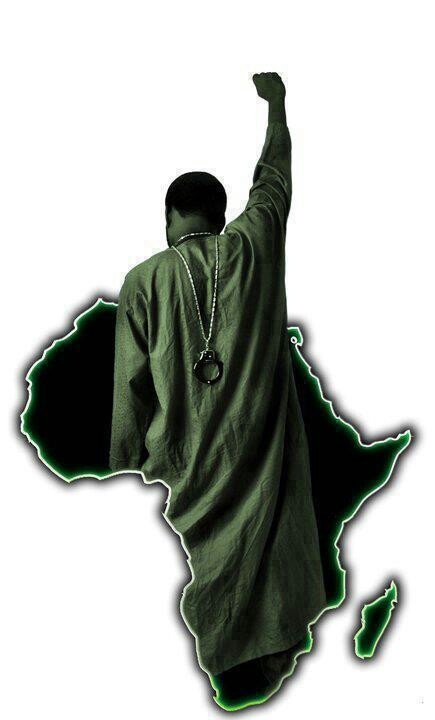
“My name is Chizoba and yes, my parents didn't give me an English name. It's not Chizo or Zozo, it's CHIZOBA!”
Every time I introduce myself, it comes with a trigger warning. A moment of bracing for what comes next—raised eyebrows, a chuckle, a “Wow, that’s long,” or worse, someone taking the liberty to rename me. Some Nigerians say it’s too traditional. Others call it “too local.” And yet, Sarah is never asked to become “Sa,” and nobody finds Alexander too much of a mouthful.
In today’s world, anything African must first be softened, anglicized, or shrunk before it can be accepted. Names must be abbreviated, foods must be translated, accents must be neutralized. Our cultural identifiers are constantly shaved down to fit into molds we didn’t design.
And the irony? We’re doing most of the shaving ourselves.
When 'Moimoi' Becomes 'Bean Cake'—But Pizza Remains Pizza
Walk into any trendy restaurant in Lagos, Johannesburg, or Nairobi these days and you might find the menu trying to “explain” African food in ways that rob it of all meaning. Moimoi becomes “bean cake.” Jollof rice is rebranded as “spicy tomato pilaf.” Egusi soup is now “melon seed stew.” Puff-puff? “African doughnut.” Kilishi? “spicy beef jerky.”
At first glance, it seems like harmless translation. A way to help “outsiders” understand what they’re eating. But let’s ask ourselves this: when last did anyone translate sushi, tacos, or lasagna?
Why do we, Africans, bend our language to fit the world’s palate, while we accommodate theirs without question?
No one calls a croissant a “buttered French roll” to make it easier for us. We learn to pronounce it. We elevate it. We respect it. Italians don’t rename pasta for the African market. Chinese cuisine comes in all its complexity—dim sum, hot pot, lo mein, and bao buns—and we adopt those names with enthusiasm.
So why is it that only African foods need rebranding to sound less “ethnic”?
Even worse, we’ve started to laugh at our dishes. Suya is “street meat,” amala looks like “used tires,” and ogbono soup is “draw soup,” like that’s an insult. Children raised on cartoons and chicken nuggets grow up turning their noses at bitter leaf and ogi. We joke about someone bringing egusi to the office microwave like they’ve committed a social crime.
What we once called delicacies are now embarrassments.
This isn’t cuisine. It’s colonization in cutlery.
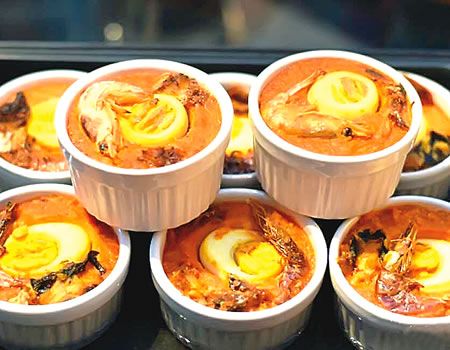
Image Credit: Pinterest
Names Are Not Too Long. Your Respect Is Too Short.
In many African cultures, names are poetry. They carry weight, identity, ancestral wisdom, and sometimes even history. A name like Chinonso (“God is near”) or Yetunde (“Mother has returned”) is more than just a word; it’s a declaration.
And yet, in modern Nigeria, people with long indigenous names are made the punchline. Children are taught to shorten their names before anyone can butcher them. Adults pre-emptively say “Just call me Kay” or “You can say Zee” to make it easier on the other person.
But let’s ask again, who shortens Bartholomew or Catherine out of convenience?
When a child named Adedayo is called “Addy” because their boss can’t be bothered to learn the full name, that’s not cultural exchange. That’s erasure. It’s a small death of meaning.
And it's not just outsiders doing this to us; we do it to ourselves. Nigerian comedy is full of skits mocking names, accents, and foods. The more “ethnic” it sounds, the funnier it is. People with so-called “H factor” are turned into walking memes. If you pronounce “oil” as “hoyel,” you’ll be laughed out of a job interview, regardless of your CV.
We mock our voices but clap when a British person says “kilishi” with a posh accent.
We’re quick to defend English grammar rules but treat indigenous languages as optional extras, even in our own homes. Many middle-class Nigerian parents today proudly say their child speaks English and French, but shamefully admit their kids can’t speak Yoruba, Hausa, or Igbo.
This isn’t just classism. It’s a crisis of identity.
“You Can Say Schwarzenegger but Struggle With Chikamso?”
There’s something profoundly unjust about how names — the most personal, intimate part of our identity — become battlegrounds for cultural dominance. A Western name is sacred, pronounced with effort, respect, and precision. We learn how to say Tchaikovsky, Schwarzenegger, and Timothée Chalamet, syllable by syllable, with pride. Yet, when it comes to African names, even among Africans, it’s suddenly “too long,” “too local,” “too hard.”
But why?
Why does Chimamanda get shortened to “Mandy” in corporate spaces? Why do we giggle when someone is named Ogbonnaya or Ebiowei, yet pause with admiration when an Italian child is named Giovanni-Lorenzo?
There’s a tragic irony in watching people contort themselves to sound palatable to an external world that rarely extends the same courtesy. In airports, schools, and Zoom meetings, we rehearse how to “soften” our vowels and “Westernize” our identity. Our names are clipped, mangled, and discarded. Chinonso becomes “Chiboy,” Yetunde becomes “Yeti,” and Olumide turns into “Luke.”
Yet no one asks Richard to be Rí-ché-dé, or Elizabeth to be Eliza-Bíti. No one mispronounces Anne, but Ngozi becomes a tongue twister. And worse — we begin to internalize it. We start to flinch at the sound of our names, apologize for them, simplify them for comfort that was never reciprocated.
This isn't about language ease. It’s about power. It’s about whose culture is seen as default, and whose is seen as “too much.” Western names get to stay whole. African names must shrink to survive.
And somewhere in that shrinking, we start to forget who we are.
The Lingering Shadows of Colonization
We cannot talk about this without naming the root: colonization. It didn’t just steal our land. It stole our compass. We were taught to see the world through someone else’s eyes, and eventually, we started to see ourselves as less.
Our schools were structured to reward fluency in English and punish speaking vernacular. Our religions changed our names at baptism. Our governments copied British bureaucracy and called it progress. We drank deep from the cup of Western education, but often spat out the knowledge of our own grandmothers.
As Ngũgĩ wa Thiong'o once said, “language carries culture, and culture carries... the values by which we perceive ourselves and our place in the world.”
That blueprint remains. Today, even as we speak of decolonization and pride in African heritage, our daily habits still betray us. The struggle to prove we are “exposed,” “international,” “elite,” continues to shape everything from what we eat to how we speak and who we choose to become.
The Tragedy of the Modern African: Cultural Translator, Not Custodian
There’s a quiet tragedy in how Africans are expected to constantly translate themselves. Whether it’s a Ghanaian software engineer working in Berlin or a Nigerian entrepreneur pitching in New York, there’s often a silent pressure to adjust your name, your voice, your cultural cues.
The assumption is that Africanness is too raw, too confusing, too heavy. So we simplify. We explain. We lighten. Until we disappear.
At home, things are no better. In Lagos, speaking pidgin might get you labeled as “razz.” In Abuja, a woman wearing a gele to a corporate event may be seen as “trying too hard.” The deeper your language, the more “bush” you sound. The closer your accent to British Received Pronunciation, the more doors you’re told will open.
We’ve become strangers to ourselves, using foreign mirrors to determine our worth.
And yet, we are proud when foreigners embrace what we discard. When Beyoncé wears Ankara, we cheer. When Jamie Oliver cooks jollof rice (badly), we debate for weeks. When Trevor Noah pronounces Ikoyi correctly, we swell with pride.
.jpeg)
Image Credit: Pinterest
But it doesn’t stop there. Let a white tourist sing “Buga” or post a video saying “Ekaro,” and suddenly we lose our minds with praise.
“Omg! You’re basically Nigerian now!”
“Wow, you nailed it, Oluwajasmine!”
Shut up. Please.
When we overhype foreigners for doing the bare minimum, singing a line in Yoruba, wearing aso-ebi, or dancing to Afrobeat—we reinforce the idea that our culture only becomes valuable when someone else touches it.
Why does it take foreign validation for us to value what we already own?
A Culture Without Confidence Will Always Need Permission
The most dangerous thing we’ve inherited from colonization isn’t English, it’s insecurity. A deep, gnawing self-doubt that tells us our culture must be adjusted before it is respected.
And so we do it ourselves. We pre-shorten names. We pre-explain dishes. We pre-apologize for accents. We laugh at our people, so the world doesn’t get the first laugh.
We don’t rename shawarma or risotto—but moimoi must become “bean cake.”
We don’t mock someone for mispronouncing “fettuccine”, but we shame our own for saying “hepp me.”
This isn’t just internalized oppression. It’s cultural surrender.
We admire those who don’t have traditional names and mock someone for being called “Akpevweoghene” or “Osakpolor.”
Everyone is guilty. I am, too, which is why we should start doing better now.
The Way Forward: Reclaiming Ourselves Without Shame
Reclaiming African identity doesn’t mean rejecting all things Western. It means refusing to erase ourselves to fit into someone else’s mold. It means treating our food, names, languages, and accents not as burdens, but as badges.
We need to teach children that Okonkwo is not too difficult to say. That gbegiri doesn’t need translation. That H factor isn’t a flaw, it’s flavour. That food, language, and names carry power.
We must stop laughing at the girl who brings native food to school. Stop mocking the boy whose name can’t be abbreviated. Stop feeding into the narrative that foreign = better.
Culture is not a costume. It’s a calling.
Say My Name. Taste My Food. Learn My Tongue. Or Leave It.
My name is Chizoba. It means “God protect us.” It carries memory, prayer, and the pride of a people who survived colonization, laughed through dictatorships, and still sing songs in their mother tongues.
It’s not “Zozo.” Not “Chiz.” Not “Zoba-bae.”
It’s Chizoba.
Say it properly, or don’t say it at all.
More Articles from this Publisher
What’s Really in Your Pepper? FIIRO Warns of Toxic Grinding Machines
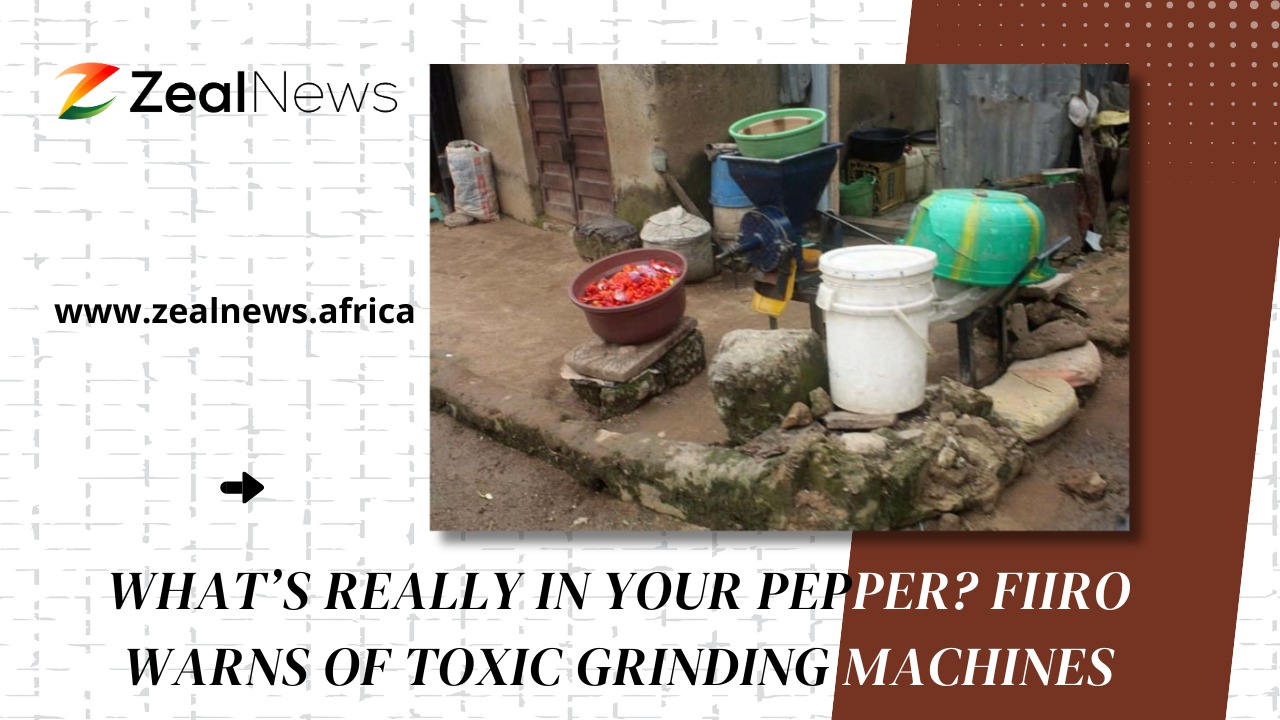
Heavy metals from common market grinding machines may be entering everyday meals, with FIIRO linking the exposure to ris...
High-Income Careers That Don’t Require Traditional University Paths

Some of the highest-paying careers don’t care where you studied. Skills, results, and execution now open doors that dipl...
Was Santa Claus Really Copied from African Masquerades?

Was Santa Claus copied from African masquerade traditions? The claim sounds bold, but the historical record tells a diff...
How Many Mudashiru Ayenis Have We Buried, Or Tagged As "Mad"?
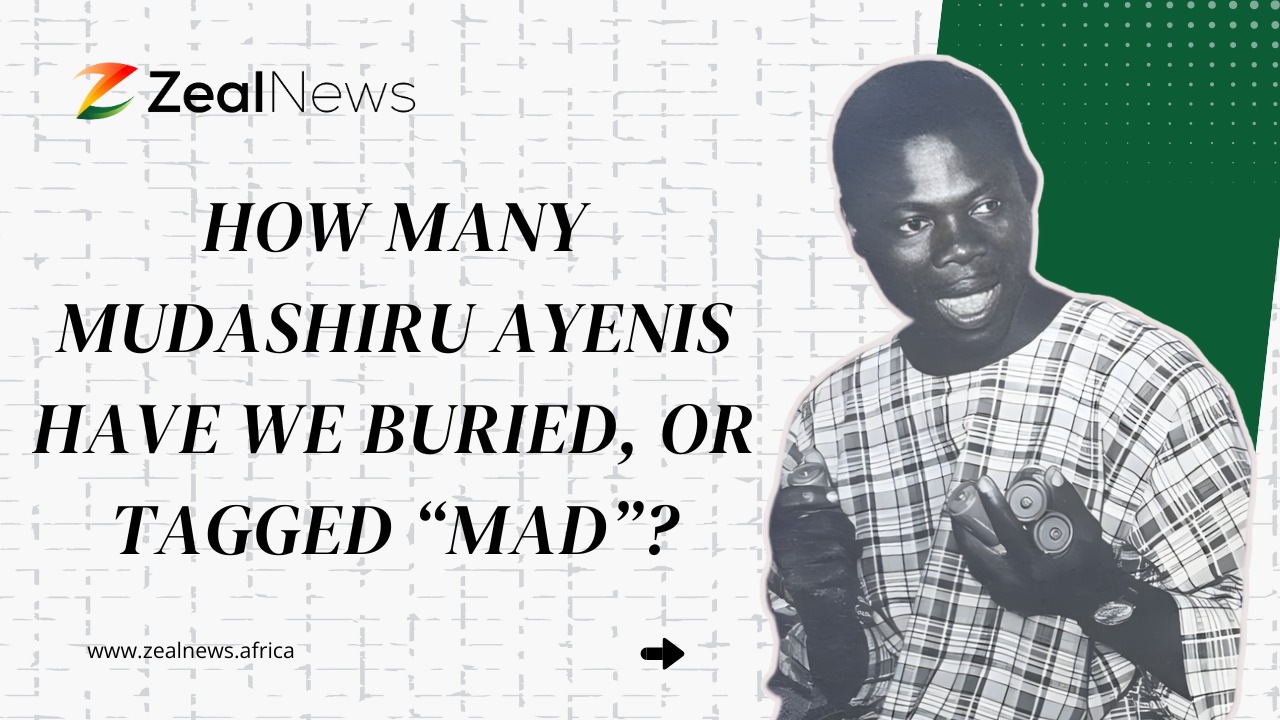
He built a robot at 20. Instead of applause, Nigeria sent him to psychiatrists. This is the story of Mudashiru Ayeni, th...
7 Countries Where Valentine’s Day Isn’t February 14
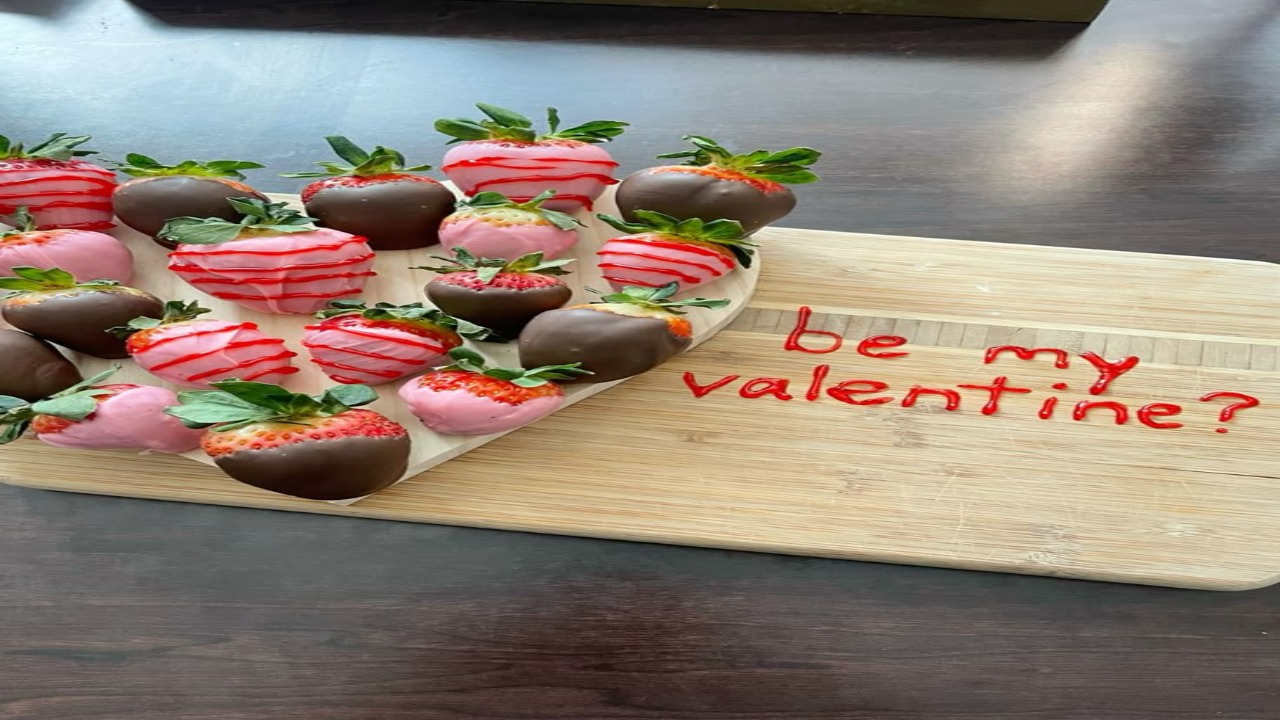
Valentine’s Day isn’t always February 14. Some countries mark love on entirely different dates, and the traditions behin...
Countries That Have Restricted Valentine’s Day Celebration
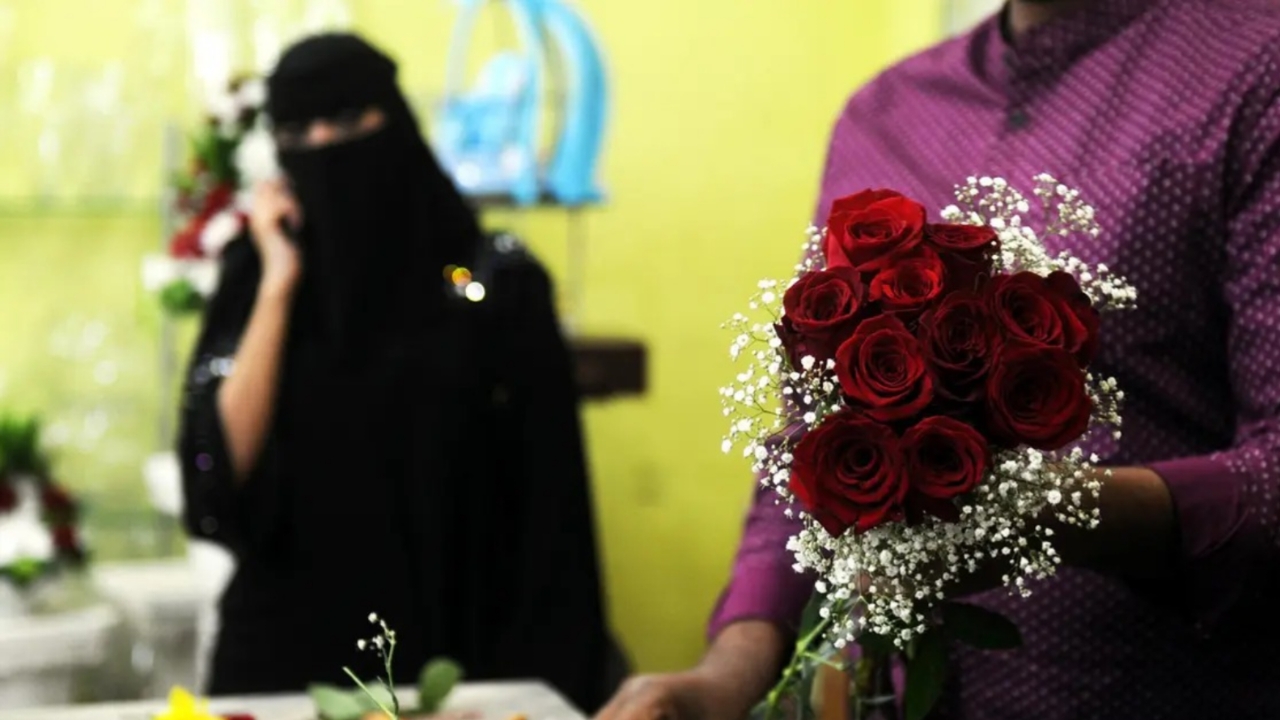
Valentine’s Day is global but not universally accepted. In some countries, February 14 has been restricted, discouraged,...
You may also like...
When Sacred Calendars Align: What a Rare Religious Overlap Can Teach Us

As Lent, Ramadan, and the Lunar calendar converge in February 2026, this short piece explores religious tolerance, commu...
Arsenal Under Fire: Arteta Defiantly Rejects 'Bottlers' Label Amid Title Race Nerves!

Mikel Arteta vehemently denies accusations of Arsenal being "bottlers" following a stumble against Wolves, which handed ...
Sensational Transfer Buzz: Casemiro Linked with Messi or Ronaldo Reunion Post-Man Utd Exit!

The latest transfer window sees major shifts as Manchester United's Casemiro draws interest from Inter Miami and Al Nass...
WBD Deal Heats Up: Netflix Co-CEO Fights for Takeover Amid DOJ Approval Claims!

Netflix co-CEO Ted Sarandos is vigorously advocating for the company's $83 billion acquisition of Warner Bros. Discovery...
KPop Demon Hunters' Stars and Songwriters Celebrate Lunar New Year Success!

Brooks Brothers and Gold House celebrated Lunar New Year with a celebrity-filled dinner in Beverly Hills, featuring rema...
Life-Saving Breakthrough: New US-Backed HIV Injection to Reach Thousands in Zimbabwe

The United States is backing a new twice-yearly HIV prevention injection, lenacapavir (LEN), for 271,000 people in Zimba...
OpenAI's Moral Crossroads: Nearly Tipped Off Police About School Shooter Threat Months Ago
ChatGPT-maker OpenAI disclosed it had identified Jesse Van Rootselaar's account for violent activities last year, prior ...
MTN Nigeria's Market Soars: Stock Hits Record High Post $6.2B Deal

MTN Nigeria's shares surged to a record high following MTN Group's $6.2 billion acquisition of IHS Towers. This strategi...
